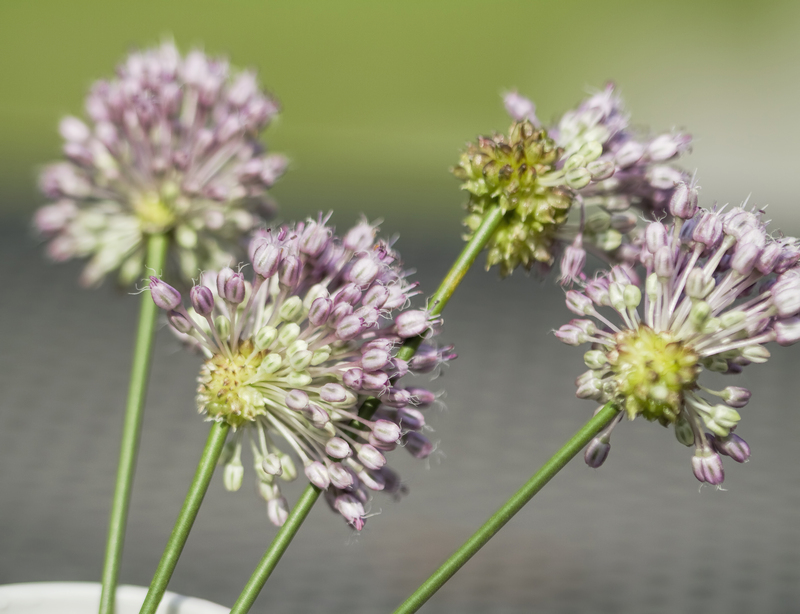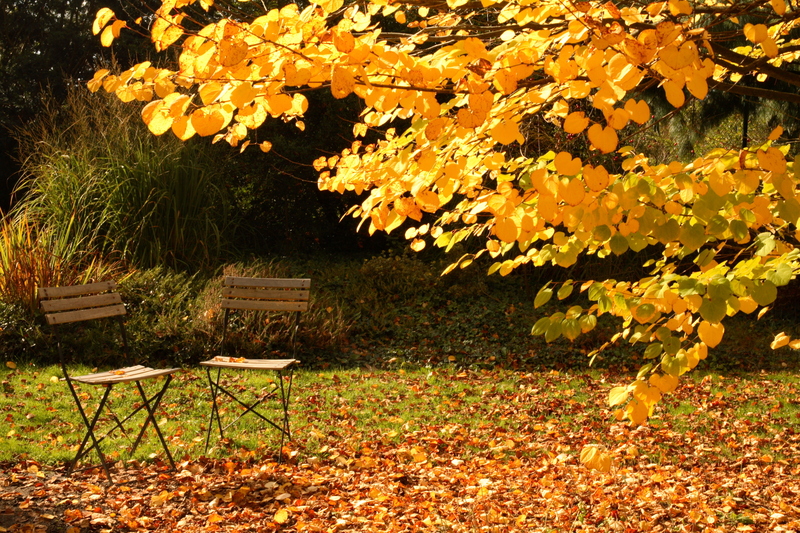Garden Like a Pro: 3 Essential Weed Strategies
Posted on 18/08/2025
Garden Like a Pro: 3 Essential Weed Strategies for a Thriving Garden
Gardening is a treasured hobby that brings joy, peace, and a vibrant touch of nature to our lives. However, battling weeds can quickly turn this beloved activity into a tiresome chore. Successful weed management is the secret to keeping your garden healthy, beautiful, and productive. If you want to garden like a pro, understanding and applying essential weed control strategies is a must. In this comprehensive guide, discover three key weed management techniques to help you maintain a weed-free garden with less effort and more results.

Why Effective Weed Control Matters
Weeds are more than just unwanted plants; they steal vital nutrients, water, and sunlight from your desirable plants. If left unchecked, they can quickly choke out vegetables, flowers, and even established shrubs. Integrated weed management ensures that your garden stays lush, productive, and visually appealing. Adopting professional weed control strategies helps you save time, reduce plant competition, and support robust plant growth without resorting to excessive use of chemicals.
Below, we explore three expert-tested, essential strategies every pro gardener uses to combat weeds. Each approach blends prevention, direct action, and long-term maintenance for a balanced, organic way to keep your garden weed-free.
1. Mulching: The Foundation of Weed Prevention
Mulching is arguably the most effective first line of defense in weed management. By covering the soil with an organic or inorganic layer, you create a barrier that suppresses weed germination and growth.
Why Mulching Works for Weed Control
- Blocks Light: Mulch deprives weed seeds of sunlight, preventing them from sprouting.
- Retains Moisture: Mulch conserves soil moisture, benefitting your plants and making it harder for shallow-rooted weeds to thrive.
- Improves Soil Health: Organic mulches like bark, straw, and compost break down over time, enriching soil quality while discouraging weeds.
Best Mulching Materials for a Weed-Free Garden
- Organic Mulch: Bark chips, compost, straw, shredded leaves, and grass clippings are eco-friendly and improve the soil as they decompose.
- Inorganic Mulch: Landscape fabric, black plastic, and gravel are excellent for persistent weed problems in paths and ornamental borders.
Pro tip: Apply mulch in a 2- to 3-inch-thick layer, keeping it a few inches away from plant stems. Replenish as needed, and remove any weeds before laying fresh mulch.
Benefits of Mulching:
- Reduces weed seed germination by up to 90%.
- Cuts watering needs for your garden.
- Improves overall garden appearance and soil fertility.
2. Manual and Mechanical Weed Removal: Direct and Thorough
No matter how diligent you are, some weeds will stubbornly break through your defenses. Physical removal--by hand or tool--is an essential weed strategy that every gardening pro relies on for effective garden weed control.
How to Hand-Pull Weeds Like a Pro
- Water the area before pulling to loosen the soil and ensure easy root removal.
- Grip weeds close to the base and pull steadily; the goal is to remove the entire root system.
- Use a weeding fork or dandelion digger for deep-rooted or perennial weeds.
Mechanical Weeding: Tools That Make the Job Easier
- Hoe: Perfect for larger areas; use a sharp hoe to slice weeds just below the soil surface.
- Stand-up weeder: Great for removing specific problem weeds without knee strain.
- Cultivator: Handheld or long-handled, cultivators loosen topsoil and disturb weed seedlings before they become established.
Regular, vigilant weeding prevents mature weeds from setting seed and overwhelming your garden. Plan to do a thorough walk-through every week, especially in peak growing season.
Key considerations:
- Remove weeds before they flower or seed to minimize future problems.
- Dispose of uprooted weeds, especially perennials, away from the garden to prevent re-rooting.
3. Smart Planting and Garden Design: Outcompeting Weeds Naturally
The most sustainable, professional weed prevention approach is to create an environment where weeds struggle to compete. Strategic planting, proper spacing, and ground cover selection can dramatically reduce weed pressure.
Dense Planting Techniques
Planting your vegetables, flowers, or shrubs close enough that their leaves quickly shade the soil is a powerful barrier to weed germination. Thick plant coverage deprives weed seeds of the light and space they need.
- Follow recommended spacing guidelines but err toward the denser end when suitable for the plant species.
- Incorporate fast-spreading ground covers (like creeping thyme, vinca, or bugleweed) in bare spots to shield soil and suppress weed growth.
Companion Planting as a Weed Barrier
Pairing plants with different growth habits--such as pairing tall, sun-loving flowers with low, leafy ground covers--can minimize exposed soil, which limits opportunities for weeds.
- Use living mulch such as white clover among vegetables to add nitrogen, crowd out weeds, and cover bare soil.
- Edge beds with vigorous border plants to keep aggressive weeds from infiltrating.
Crop Rotation and Succession Planting
Varying your crops and planting schedules can also disrupt the life cycles of common weeds. Rotate crops annually to prevent weed adaptation and disease buildup. Use succession planting--sowing new seeds as you harvest--to minimize bare soil and reduce weed-colonized gaps.
Integrating the Three Weed Management Techniques
Master gardeners combine mulching, manual removal, and intelligent planting design to create a weed-resistant garden ecosystem. This integrated approach lessens your dependence on chemical weed killers and leads to a healthier, more resilient landscape.
Creating a Weed Prevention Schedule
- Early spring: Mulch beds, inspect for early weed growth, and adjust plant spacing.
- Weekly walkthroughs: Hand-pull small weeds and address problem areas immediately.
- Seasonal review: Adjust mulch as it breaks down, refresh planting schemes, and swap out underperforming ground covers for more aggressive varieties.
Frequently Asked Questions About Weed Management
Are Chemical Herbicides Necessary for a Pro-Level Garden?
Many professional gardeners manage weeds with minimal to no chemical input. While selective herbicides may help in severe infestations or for invasive species, an integrated strategy focused on organic weed control (mulching, hand-pulling, dense planting) is both effective and environmentally responsible.
How Do I Identify the Most Troublesome Weeds in My Area?
Different weeds proliferate in different regions. Observe your garden, consult local extension offices, or use plant identification apps to learn about your main weed threats. This helps you tailor your garden weed prevention tactics more effectively.
What's the Best Way to Prevent Weeds Organically?
Combine thick organic mulch, prompt hand-pulling, and strategic planting. Avoid tilling unnecessarily, as this brings dormant weed seeds to the surface. Over time, improving soil health and minimizing disturbance will naturally reduce weed populations.

Pro Tips for a Weed-Free Garden All Season Long
- Don't let weeds seed--remove them promptly for lasting success.
- Use natural mulches wherever possible to improve soil health.
- Employ raised beds for better soil control and easier weeding access.
- Avoid over-fertilizing, as excessive nutrients can encourage both plant and weed growth.
- Maintain sharp weeding tools for efficient removal.
Conclusion: Take the Professional Approach to Garden Weed Management
Learning to garden like a pro means applying time-tested, sustainable, and practical solutions to your weed problems. By establishing a strong mulch base, embracing hands-on weed removal, and designing your planting layout for natural weed suppression, you'll enjoy vigorous, healthy plants and a garden you can truly take pride in.
Remember, it's about consistency and integration--combine these three essential strategies to create a weed-resistant, flourishing oasis. With these expert weed control tips in hand, you can transform your gardening experience from frustrating to fabulous. Happy gardening!
Latest Posts
Transform Your Windy Garden into a Serene Oasis
Garden Resurrection: Breathing New Life into Neglect
Designing an Engaging Outdoor Haven for Kids

